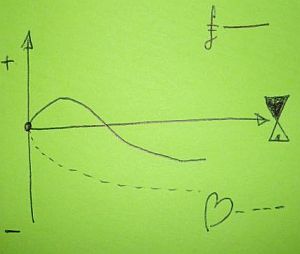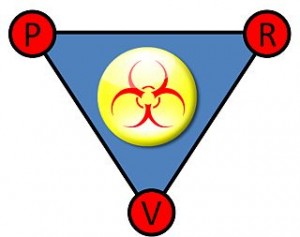 One of the biggest challenges posed by Improvement is the requirement for beliefs to change – because static beliefs imply stagnated learning and arrested change. We all display our beliefs for all to hear and see through our language – word and deed – our spoken language and our body language – and what we do not say and do not do is as important as what we do say and what we do do. Let us call the whole language thing our Rhetoric – the external manifestation of our internal mental model.
One of the biggest challenges posed by Improvement is the requirement for beliefs to change – because static beliefs imply stagnated learning and arrested change. We all display our beliefs for all to hear and see through our language – word and deed – our spoken language and our body language – and what we do not say and do not do is as important as what we do say and what we do do. Let us call the whole language thing our Rhetoric – the external manifestation of our internal mental model.
Disappointingly, exercising our mental model does not seem to have much impact on Reality – at least not directly. We do not seem to be able to perform acts of telepathy or telekinesis. We are not like the Jedi knights in the Star Wars films who have learned to master the Force – for good or bad. We are not like the wizards in the Harry Potter who have mastered magical powers – again for good or bad. We are weak-minded muggles and Reality is spectacularly indifferent to our feeble powers. No matter what we might prefer to believe – Reality trumps Rhetoric.
Of course we can side step this uncomfortable feeling by resorting to the belief of One Truth which is often another way of saying My Opinion – and we then assume that if everyone else changed their belief to our belief then we would have full alignment, no conflict, and improvement would automatically flow. What we actually achieve is a common Rhetoric about which Reality is still completely indifferent. We know that if we disagree then one of us must be wrong or rather un-real-istic; but we forget that even if we agree then we can still both be wrong. Agreement is not a good test of the validity of our Rhetoric. The only test of validity is Reality itself – and facing the unfeeling Reality risks bruising our rather fragile egos – so we shy away from doing so.
So one way to facilitate improvement is to employ Reality as our final arbiter and to do this respectfully. This is why teachers of improvement science must be masters of improvement science. They must be able to demonstrate their Improvenent Science Rhetoric by using Reality and their apprentices need to see the IS Rhetoric applied to solving real problems. One way to do this is for the apprentices to do it themselves, for real, with guidance of an IS master and in a safe context where they can make errors and not damage their egos. When this is done what happens is almost magical – the Rhetoric changes – the spoken language and the body language changes – what is said and what is done changes – and what is not said and not done changess too. And very often the change is not noticed at least by those who change. We only appear to have one mental model: only one view of Reality so when it changes we change.
It is also interesting to observe is that this evolution of Rhetoric does not happen immediately or in one blinding flash of complete insight. We take small steps rather than giant leaps. More often the initial emotional reaction is confusion because our experience of the Reality clashes with the expectation of our Rhetoric. And very often the changes happen when we are asleep – it is almost as if our minds work on dissolving the confusion when it is not distracted with the demands of awake-work; almost like we are re-organising our mental model structure when it is offline. It is a very common to have a sleepless night after such an Reality Check and to wake with a feeling of greater clarity – our updated mental model declaring itself as our New Rhetoric. Experienced facilitators of Improvement Science understand this natural learning process and that it happens to everyone – including themselves. It is this feeling of increased clarity, deeper understanding, and released energy that is the buzz of Improvement Science – the addictive drug. We learn that our memory plays tricks on us; and what was conflict yesterday becomes confusion today and clarity tomorrow. One behaviour that often emerges spontaneously is the desire to keep a journal – sometimes at the bedside – to capture the twists and turns of the story of our evolving Rhetoric.
This blog just such a journal.


